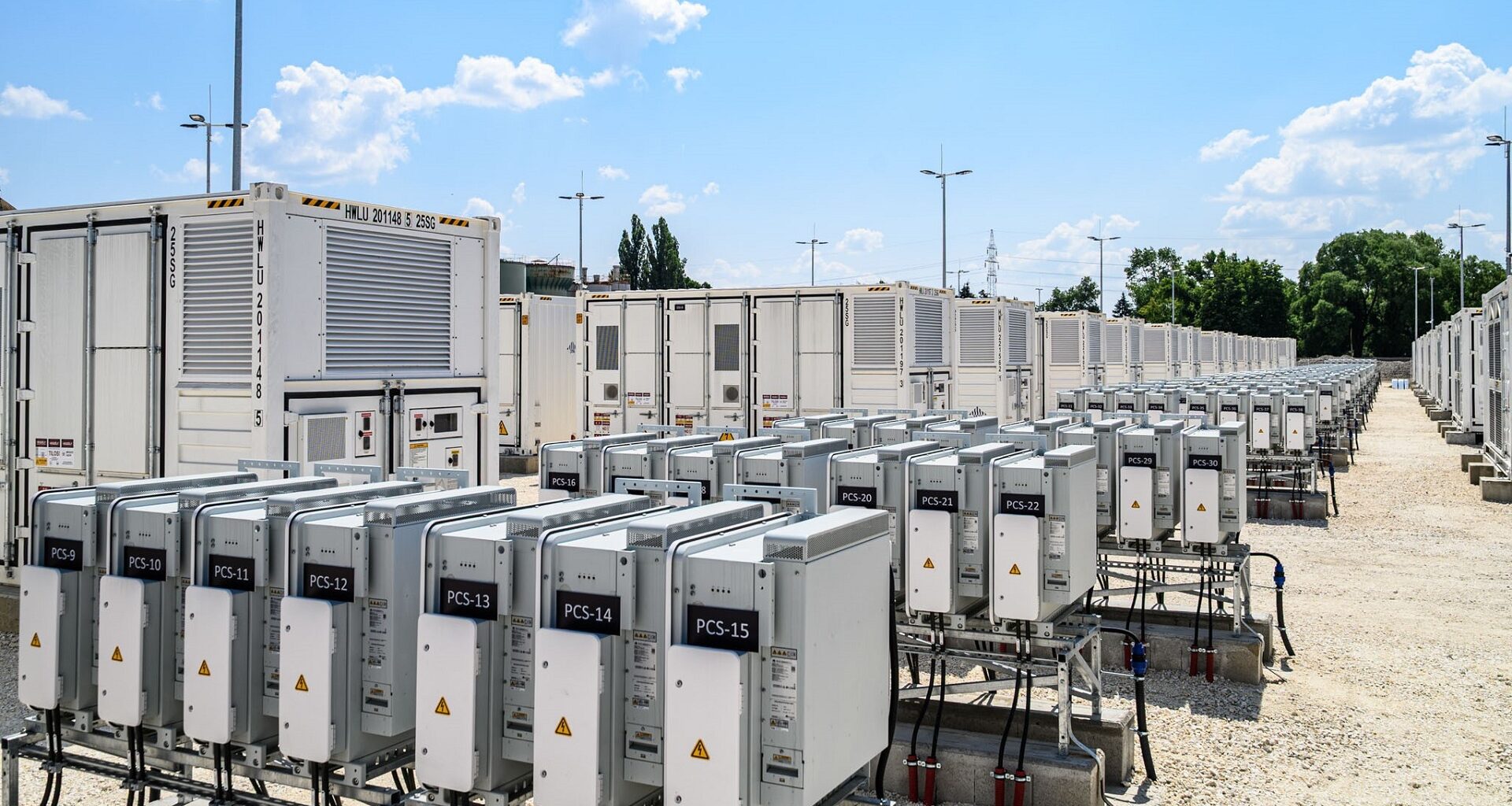Hungary has just switched on its largest battery energy storage system (BESS) to date, stepping up its role in Central Europe’s growing grid-scale energy transition.
The new 40 MW / 80 MWh system, installed at the Dunamenti gas power plant near Budapest, is the biggest of its kind in the country and part of a broader European push to shore up renewable power with large-scale battery backup.
Installed by Switzerland-based MET Group, the project is powered by Tesla Megapack 2 units, supplied by Huawei Technologies’ battery units, and built by Forest-Vill and follows a smaller 4 MW / 8 MWh pilot at the same site in 2022.
Together, they can power all of Budapest’s public and decorative lighting for four hours straight, the company said.
At the official inauguration ceremony, Péter Horváth, CEO of the Dunamenti Power Station, said: “The application of battery energy storage systems is a key element on the road to energy transition, as they allow to increase the penetration of new renewable sources into the power grid.”
Backing up the energy transition
Battery storage is increasingly seen as a cornerstone of the energy transition, offering grid stability and flexibility as renewables surge.
The new facility features 48 battery containers and 240 inverters, backed by 4 billion forints in state funding. The total project cost hasn’t been disclosed.
“We must strive by all possible means to exploit Hungary’s renewable energy sources as extensively as possible, using well-established, cost-effective technologies. Therefore, the Hungarian Battery Association supports the efforts of the Hungarian energy policy, which deals with the green energy transition as a top priority,” said Péter Kaderják, President of the Hungarian Battery Association.
The new facility supports a growing push to green Hungary’s power grid, especially as solar capacity surges. With no moving parts and a rapid response time, batteries like this are designed to stabilize the grid by storing excess solar power and releasing it when demand peaks.
Region charging up
Hungary isn’t alone in stocking up on battery backup as it charts its green energy path. In neighbouring Bulgaria, a massive 124 MW/496 MWh battery energy storage system went live in Lovech earlier this year. Touted as one of the largest in the European Union, the project signals Bulgaria’s serious intent to modernize its grid and support renewable energy integration.
To the east, Romania is also stepping up. The country recently completed a 24 MWh pilot project, laying the groundwork for a much larger 216 MWh facility as part of its broader transition plan. These efforts are aimed at easing grid pressure as more wind and solar projects come online.
Meanwhile, Serbia—Hungary’s southern neighbour—is preparing to deploy 200 MW/400 MWh of battery storage capacity. The planned systems are expected to be collocated with utility-scale solar farms, helping the country manage intermittency and improve energy resilience.
The Dunamenti BESS is part of MET Group’s broader play across Europe. In 2024, the company acquired French battery storage developer Comax, and it now plans to expand co-located BESS installations alongside solar power plants across multiple countries.
Active in 17 nations and 44 international energy trading hubs, MET reported €17.9 billion in consolidated revenue last year. Its gas and electricity trading volumes hit 140 billion cubic meters and 76 TWh, respectively.
